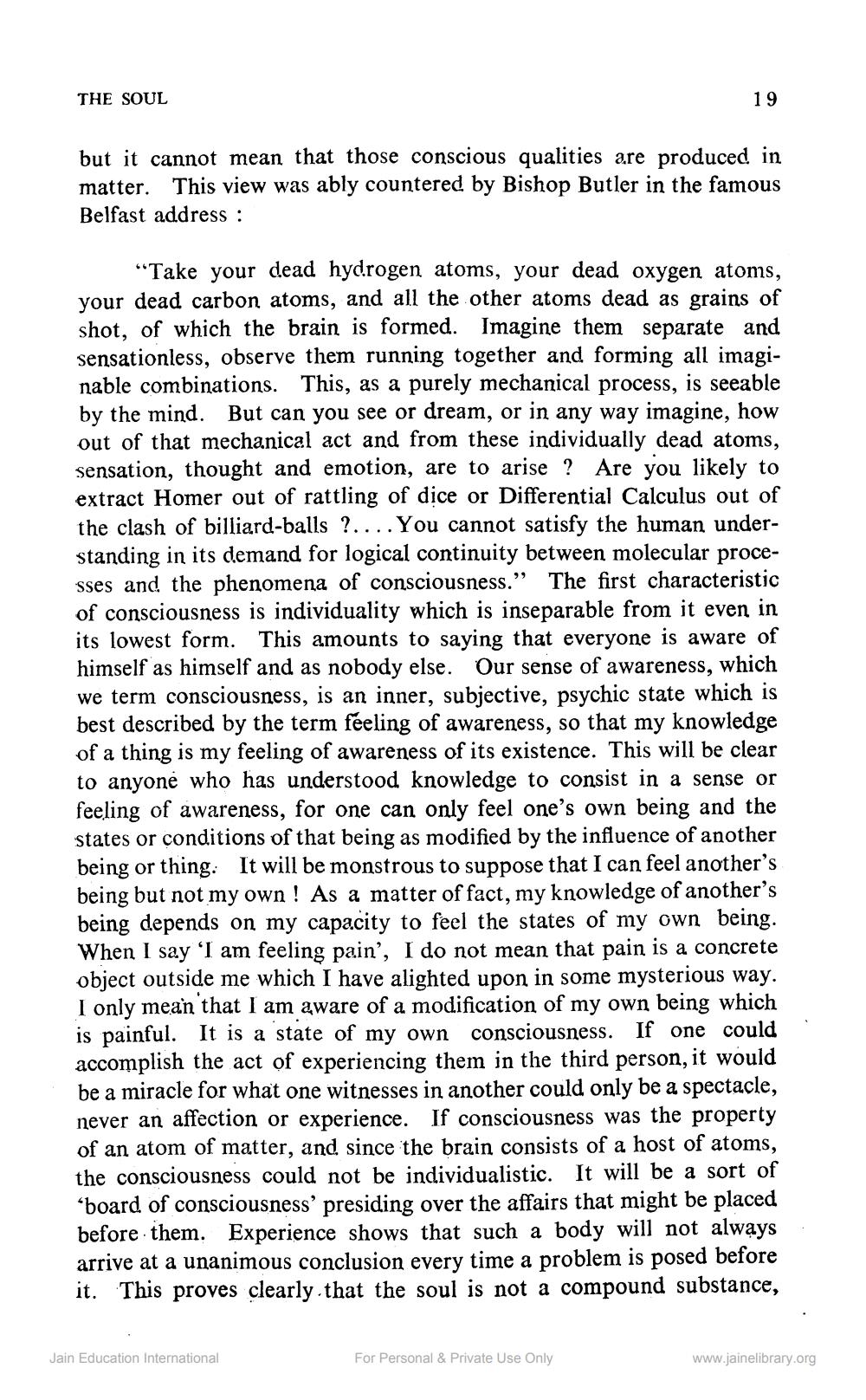________________
THE SOUL
19
but it cannot mean that those conscious qualities are produced in matter. This view was ably countered by Bishop Butler in the famous Belfast address :
"Take your dead hydrogen atoms, your dead oxygen atoms, your dead carbon atoms, and all the other atoms dead as grains of shot, of which the brain is formed. Imagine them separate and sensationless, observe them running together and forming all imaginable combinations. This, as a purely mechanical process, is seeable by the mind. But can you see or dream, or in any way imagine, how out of that mechanical act and from these individually dead atoms, sensation, thought and emotion, are to arise ? Are you likely to extract Homer out of rattling of dice or Differential Calculus out of the clash of billiard-balls ?.... You cannot satisfy the human understanding in its demand for logical continuity between molecular processes and the phenomena of consciousness.” The first characteristi of consciousness is individuality which is inseparable from it even in its lowest form. This amounts to saying that everyone is aware of himself as himself and as nobody else. Our sense of awareness, which we term consciousness, is an inner, subjective, psychic state which is best described by the term feeling of awareness, so that my knowledge of a thing is my feeling of awareness of its existence. This will be clear to anyone who has understood knowledge to consist in a sense or feeling of awareness, for one can only feel one's own being and the states or conditions of that being as modified by the influence of another being or thing. It will be monstrous to suppose that I can feel another's being but not my own ! As a matter of fact, my knowledge of another's being depends on my capacity to feel the states of my own being. When I say 'I am feeling pain', I do not mean that pain is a concrete object outside me which I have alighted upon in some mysterious way. I only mean that I am aware of a modification of my own being which is painful. It is a state of my own consciousness. If one could accomplish the act of experiencing them in the third person, it would be a miracle for what one witnesses in another could only be a spectacle, never an affection or experience. If consciousness was the property of an atom of matter, and since the brain consists of a host of atoms, the consciousness could not be individualistic. It will be a sort of ‘board of consciousness' presiding over the affairs that might be placed before them. Experience shows that such a body will not always arrive at a unanimous conclusion every time a problem is posed before it. This proves clearly that the soul is not a compound substance,
Jain Education International
For Personal & Private Use Only
www.jainelibrary.org




